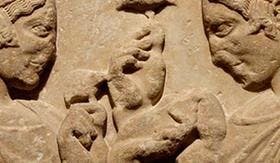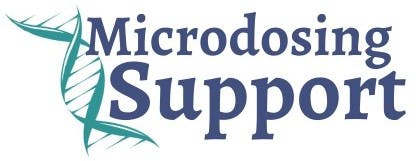The History of Microdosing Psilocybin

The History of Microdosing Psilocybin: Embark on a captivating journey through time, tracing the evolution of microdosing with psilocybin—a practice blending ancient wisdom and cutting-edge science.
Delve into the profound therapeutic potential of this subtle approach, from its roots in indigenous rituals to its resurgence in modern times. Discover the remarkable effects reported by individuals seeking enhanced creativity, increased focus, and emotional well-being.
Uncover the cultural significance of microdosing psilocybin and its impact on our understanding of consciousness and mental health. As you immerse yourself in this article, you'll gain insights into the historical context, scientific research, and personal experiences that illuminate the path of microdosing.
Whether you're curious about alternative therapies, fascinated by the intersection of tradition and innovation, or simply intrigued by the possibilities of self-discovery and growth, this exploration of the history of microdosing psilocybin delves into the benefits of taking small doses of psychedelic substances such as psilocybin, the active ingredient in magic mushrooms. Embark on this transformative journey now, and unlock the hidden potential within yourself. Let's dive in!
What does microdosing psilocybin mean?
Microdosing involves taking a sub-perceptual dose of a psychedelic substance, such as psilocybin, which is the active ingredient in magic mushrooms. The dose is typically small enough that it does not produce the full-blown effects of a psychedelic trip but instead produces a subtle shift in consciousness.
The exact dose can vary from person to person, but it is generally recommended to start with a low dose of around 0.1-0.5 grams of dried magic mushrooms or an equivalent amount of psilocybin extract. The dose is typically taken every few days or once a week for a period of several weeks or months, depending on the protocol that is used.
The effects of microdosing psilocybin can vary from person to person, but some common benefits reported by microdosers include increased creativity, enhanced focus, improved mood, and reduced anxiety and depression. Some people also report experiencing a greater sense of connection with themselves and others, as well as a greater appreciation for the natural world.
It is important to note that this practice is not a magic cure for all ailments. It should be seen as a tool to complement therapy or other practices such as yoga, tai chi, breathing practices, dance and meditation. Additionally, microdosing psilocybin is not suitable for everyone and can have potential risks and side effects.
It is also important to note that psilocybin is a Schedule I substance in most Countries, meaning it is illegal to possess or use it for any purpose, including research or therapeutic purposes. However, in some countries such as the Netherlands and Jamaica, psilocybin-containing mushrooms are legal and can be purchased in some shops or used in religious or spiritual ceremonies.
When did humans start using psilocybin for therapeutic purposes?
The use of psilocybin-containing mushrooms for therapeutic purposes dates back thousands of years. In fact, cave paintings in Algeria dating back to 9000 BCE depict the use of mushrooms in religious and spiritual ceremonies. Similarly, ancient indigenous cultures in Central and South America, such as the Mazatec, Aztecs and the Mayan, used psilocybin mushrooms in healing rituals and to communicate with the spirit world.
In the 1950s and 1960s, researchers began to study the therapeutic potential of psilocybin and other psychedelics in a clinical setting. However, the use of these substances was soon outlawed due to their association with the counterculture movement and concerns about their potential for abuse.
Despite this setback, research on the therapeutic potential of this compound continued in underground settings. In recent years, there has been a renewed interest in psilocybin research, with several clinical trials showing promising results in the treatment of conditions such as depression, anxiety, grief and addiction.
One notable study, published in the Journal of Psychopharmacology in 2011, found that psilocybin-assisted therapy was effective in reducing anxiety and depression in patients with advanced-stage cancer. Another study, published in the Journal Nature in 2016, found that a single dose of psilocybin could produce long-lasting positive effects on mood and outlook in patients with treatment-resistant depression.
These studies, along with others, have renewed interest in the therapeutic potential of psilocybin and other psychedelics. However, it is important to note that further research is needed to fully understand the potential benefits and risks of microdosing psilocybin and other forms of psychedelic therapy.
In which cultures are magic mushrooms used for spiritual and ritual purposes?
Magic mushrooms, which contain psilocybin, have been used for centuries by various cultures around the world for spiritual and ritual purposes.

Here are a few examples:
- Indigenous cultures in Central and South America: As mentioned earlier, the Mazatec, Aztecs and the Mayan used psilocybin mushrooms in healing rituals and to communicate with the spirit world. The Mazatec people of Mexico also have a long history of using psilocybin-containing mushrooms in religious ceremonies.
- Native American Church: The Native American Church, which originated in the late 19th century, uses peyote cactus as a sacrament in its religious ceremonies. Some members of the church also use psilocybin-containing mushrooms in their rituals.
- Modern spiritual movements: In recent years, some modern spiritual movements have incorporated the use of psilocybin into their practices. For example, the Santo Daime church, which originated in Brazil, uses ayahuasca and other plant medicines in their ceremonies, including psilocybin-containing mushrooms
- Western counterculture movement: In the 1960s, the use of psychedelics such as LSD and magic mushrooms became popular among the Western counterculture movement as a means of exploring consciousness and spirituality.
It is important to note that the use of psilocybin-containing mushrooms for spiritual or ritual purposes is often deeply rooted in cultural traditions and should be approached with respect and caution. Additionally, the use of psychedelics in spiritual or ritual contexts is often illegal and can carry significant legal and personal risks.
The position of the scientific community on microdosing psilocybin
The scientific community's position on microdosing psilocybin is evolving as more research is conducted in this area. While the therapeutic potential of psilocybin and other psychedelics has been recognized for decades, it has only been in recent years that researchers have begun to investigate the potential benefits of microdosing, which involves taking sub-perceptual doses of the substance over an extended period of time.
Some studies suggest that microdosing psilocybin may have potential benefits for a variety of conditions, including depression, anxiety, and addiction. For example, a 2022 study published online found that microdosing psilocybin was associated with improvements in mood, anxiety, and stress in a sample of healthy adults. Similarly, a 2023 clinical study: “Experiences of microdosing psychedelics in an attempt to support wellbeing and mental health” found that “Participants reported that they had experienced beneficial effects of microdosing on their mental health, alongside cognitive, physical and social changes”.
Despite these promising findings, there is still much that researchers do not know about the long-term effects of microdosing psilocybin. Additionally, the use of psilocybin and other psychedelics carries significant legal and ethical considerations, as well as potential risks for individuals with certain medical or psychiatric conditions.
It is important to note that microdosing psilocybin or other psychedelics should only be done under the guidance of a qualified healthcare professional, and in a legal and safe setting. At Microdosing Support, our therapists are committed to providing high-quality, professional services to clients around the world who are interested in exploring the potential benefits of microdosing as part of their wellness journey.
At Microdosing Support, our therapists are committed to staying up-to-date with the latest research on psilocybin and other psychedelics. We work with clients to deliver accurate and evidence-based information about the potential benefits and risks of microdosing, and help them make informed decisions about their wellness journey. Our therapists are trained to assess clients for potential medical or psychiatric contraindications for microdosing, and to create personalised microdosing plans that prioritise safety, ethical considerations, and individual goals.
In which countries is the practice of psilocybin microdosing legal?
The legal status of psilocybin and other psychedelics varies widely across the world. In some countries, these substances are completely legal, while in others, they are strictly prohibited. In many countries, the legal status of psychedelics is still in flux, with ongoing debates and discussions about their potential therapeutic value and safety.
In the United States, psilocybin and other psychedelics are still classified as Schedule I drugs, meaning they are considered to have a high potential for abuse and no recognised medical value. However, there has been a growing movement to decriminalise or legalise these substances, particularly in the context of medical or therapeutic use. As of 2023, Oregon is the only state in the US that has legalised the therapeutic use of psilocybin under a regulated system, while several other cities have decriminalised its possession.
In Canada, psilocybin is still classified as a Schedule III drug, meaning it is legal for medical and scientific purposes but requires a prescription. The country has recently seen an increase in interest in psychedelic therapies, with several clinical trials currently underway.
In some countries, such as the Netherlands and Portugal, the possession and sale of psilocybin-containing mushrooms is not strictly enforced, although it is still technically illegal.
The legal status of psilocybin and other psychedelics is complex and varies widely across the world. It is important for individuals to do their own research and consult with qualified professionals before considering the use of these substances as part of their wellness journey.
At Microdosing Support, we always prioritise safety and legality when working with clients. We encourage individuals to familiarise themselves with the laws in their own country or state before considering the use of psilocybin or other psychedelics. We work with clients to create personalised microdosing plans that take into account legal and ethical considerations and can help connect them with qualified healthcare professionals abiding by the risk and harm reduction framework.
If you are interested in exploring psilocybin microdosing for personal growth and well-being, we invite you to reach out to us to learn more about our services and how we can help.
